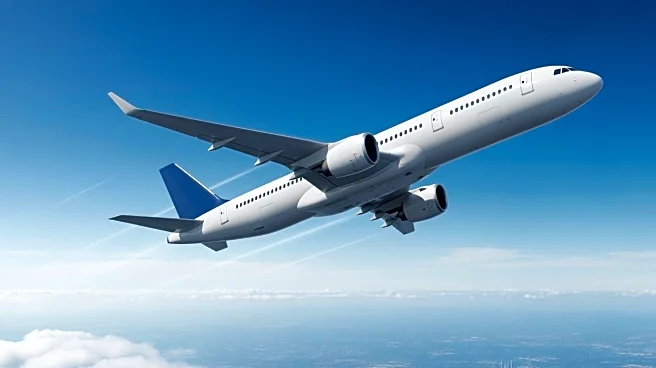What's Happening?
Delta Air Lines is set to launch its first nonstop flight to Riyadh, Saudi Arabia, starting October 2026. This new route from Atlanta to Riyadh will be operated three times a week using Airbus A350-900 aircraft. The initiative is part of Delta's strategy
to expand its global route network and enhance connectivity between the U.S. and Saudi Arabia. The move aligns with Saudi Arabia's Vision 2030, which aims to boost tourism and strengthen international relations. Delta's new service will offer passengers various amenities, including lie-flat seats and chef-curated meals, enhancing the travel experience.
Why It's Important?
The introduction of Delta's nonstop flight to Riyadh is significant for several reasons. It strengthens the economic and cultural ties between the U.S. and Saudi Arabia, potentially increasing tourism and business opportunities. The route supports Saudi Arabia's Vision 2030, which seeks to diversify the economy and promote international tourism. For Delta, this expansion represents a strategic move to connect customers to dynamic global destinations, enhancing its competitive position in the airline industry. The new service also provides Saudi travelers with direct access to over 150 U.S. cities, facilitating cultural exchange and economic collaboration.
What's Next?
Delta's new route to Riyadh is expected to open doors for further collaboration between the U.S. and Saudi Arabia. As the service begins, stakeholders in tourism and business sectors may explore new opportunities for partnerships and investments. The airline industry could see increased competition as other carriers might consider similar expansions to capitalize on the growing demand for international travel. Delta's commitment to expanding its global network may lead to additional routes and services, further enhancing its market presence.
Beyond the Headlines
The launch of Delta's service to Riyadh could have broader implications for the airline industry, including increased focus on Middle Eastern markets. It may also influence other airlines to explore similar routes, contributing to a more interconnected global travel network. The move highlights the importance of strategic international partnerships in achieving long-term business goals and fostering cultural understanding.
















